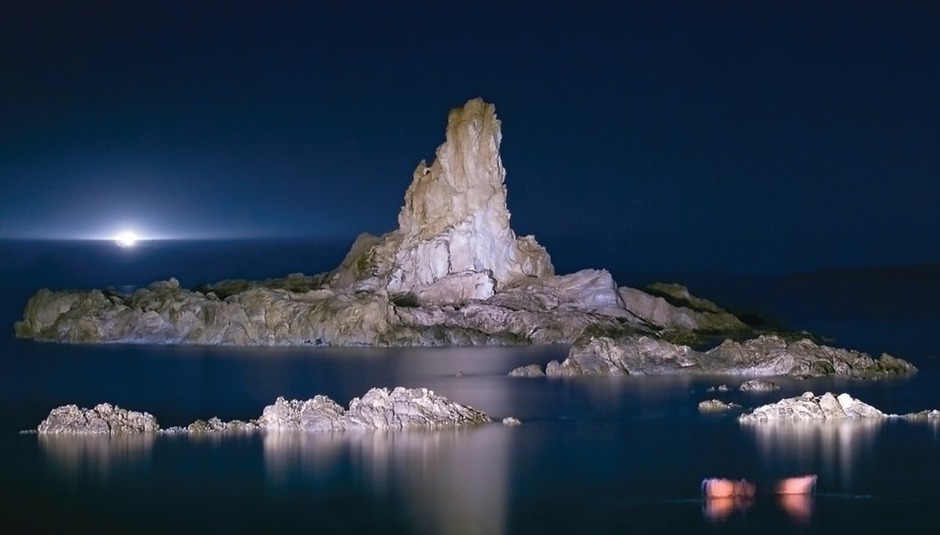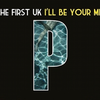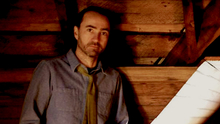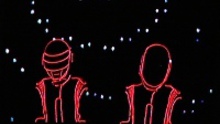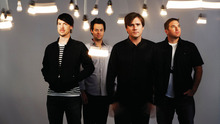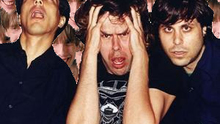Mike Oldfield looks more like a civil servant than a rebel. His music isn’t very fashionable and it hasn’t been for thirty years. To many he resides in the ‘where are they now?’ category; a relic of a bygone age when Rick Wakeman wasn’t a Grumpy Old Man, Pink Floyd got more column inches than their children, and Phil Collins had yet to emerge from behind his drum kit.
You can’t, however, argue with the genius of Tubular Bells. It will probably be written on his tombstone, which may even be the shape of a tubular bell, but there is more to Oldfield's career than just one album and it is worth further investigation.
There is a reputation for grouchiness that permeates previous interviews with Oldfield - for example, he doesn’t answer questions that start with ‘Why’ – but throughout the forty-odd minutes I talked with him, there was no hint of the awkwardness that had been anticipated and he was refreshingly honest about any subject broached.
Here, he talks about the Incantations Reissue and Deluxe Edition. An album in which he not only brainwashed the Royal Family, but also accidentally kick started punk as a global force. There are also old squabbles with his original manager Richard Branson, his thoughts on the current state of the music industry, and the reasoning behind why he thinks he is the “Real Rebel”.
Hello Mike. How is it out in the Bahamas?
Yes, it’s great.
There were rumours you were to perform at Glastonbury this year. Are you not tempted to play any of the big festivals?
No. That was an April fool.
Did you start it?
No. Someone else did.
Is there not part of you that hankers to be playing to such large scale audiences again?
I do think about it from time to time, but I’ve got plenty of other projects to keep me busy. Maybe if it was something very special. I think the last big thing was the Berlin concert for the Millennium. That was quite an event. If something like that turned up again, that might be something I’d be interested in. - [I don’t think he meant waiting for another Millennium, but I wouldn’t rule it out]
So far you have reissued your first three LPs Tubular Bells, Hergest Ridge and Ommadawn. And now we’ve got number four Incantations; Will the series continue through the rest of the albums over your whole career?
We’ve just done Incantations from what was available, because at least half the tapes went missing. In the early days there was no contractual requirement to even keep the master tapes. I just happened to keep the masters for some of the albums. With Incantations some of it was there, while other bits were scattered on different reels of tapes. I’ve been working on a mix of ‘North Star’, a track from Platinum that is sounding good. Haven’t got QE2, haven’t got any of the later albums yet. My big project will be the complete 5.1 of Amarok, providing we’ve got the Multi-Track tapes, because that’s one of my favourites.
Yes you’ve mentioned that before. It wasn’t one of your commercial hits though?
It would have been. If I’d agreed to Virgin’s, well, Richard Branson’s wish to call it Tubular Bells II.
Was there anything to do with Tubular Bells that he could relate to Amarok? Or was his decision based on making money?
It was a thing he wanted to call it. And if I’d agreed to that he would have put all the promotion behind it, and I’m pretty sure it would have been a smash hit. So it is nothing to do with the music. At the time I threw every idea out the window and just did spontaneously what came in my head.
...Starting from scratch in the studio?
Yes, a different approach. It’s tragic really that it’s not that well known. Like I said, it would have been a big hit had the record company promoted it, but they didn’t do anything. So I had to promote it myself. I hired a publicity company, and went round radio stations, I had listenings at my studio in London to get some of the biggest DJ’s at the time to come and listen to it. [Most impressively to boost publicity Mike had a competition for the public to find a hidden message within the record. First Prize: £1,000. The Hidden Message being a Morse code signal - “FUCK OFF RB” ]
You said while early in your career, when Richard Branson was still your manager, you used to do that yourself, speaking to the radio pluggers, promoting the albums. It gave you a grounding into how the business works.
Well in those days you had to get on the Radio One playlist if you wanted a hit. I had one big hit with ‘Moonlight Shadow’, and at the time to have one big radio hit was the thing that you had to have to sell lots of copies. From the record company’s point of view that was their number one priority. So I was under pressure to produce more ‘Moonlight Shadow’ type tracks.
Aside from ‘Moonlight Shadow’ and a couple of other singles, your career is predominantly known for expansive albums. Nowadays, a lot of the new generation download single tracks. They don’t really do albums at all. How do you feel about that?
Well, it’s progress. I’m glad you said that actually, the whole idea of an album…[pause]
It’s disappearing almost?
It is disappearing. Some things are disappearing, the way everyone downloads everything straight to their little player. It’s a good thing in a way. I’ve been reading up a little bit about the music business. How many are struggling to survive - everyone has seen the album sales plummet - and musicians are having to go out on the road to earn money. Which in a way is a good thing, on the other hand there are things that you can only do in the studio. So what a lot of the artists end up doing is taking a backing track on the road and kind of playing bits and pieces over it. That’s a little bit sad. But yeah, a completely live performance is a thing of the past.
You used to bring a full band of musicians on tour to play everything, every sound on the recordings. No cheating.
Yes. Well on some of the later concerts we had a basic backing track. In some ways it made it easier. Like for example with Tubular Bells II we had 4 or 5 keyboard players, and every few seconds they needed a different sound on their keyboard. If you’ve got a synchronisation computer running then you can get the computer to change programmes on the keyboard so they just have to concentrate on playing the notes rather than worry, “What sound am I supposed to be playing for these 5 bars?”, so that was good. You can also synch things like the out front mixing desk, the lighting rig, so you have everything synchronised. There are also many artists who don’t even play or sing. You’re watching a mime artist. That’s one of the things I had to do on some TV shows, European ones, I had to mime, which I absolutely hated. But they don’t give you the opportunity to play live. So I’d rather leave miming to an expert like Marcel Marceau. It’s all become a bit of a joke really, the whole music business, some parts of it.
Are there any artists you follow nowadays?
No, not really. I’m semi-retired now. Not really interested in the music business. I still love the technology. I’ve been waiting years and years for technology to get to a certain level where it really does replace the old reel to reel tape and mixing desks. We’re just on the edge of it now. One of the wonderful things is that we collaborate with other musicians over the internet. That is fantastic.
You touched on advances in technology. Has there always been an irritation that your earlier releases didn’t sound as good as you wanted them to sound?
I always managed to get a great sound. One of the biggest problems was the quality of the sound deteriorating over time because the tape would fall apart. One album I had to completely re-record because the tape after 100 plays starts to lose hi-frequencies, things like that. The ability to edit, to do 10 takes of a guitar solo, then quickly stick it together with modern software, that’s fantastic. But the old albums, they still sound good. Obviously everything was all analogue equipment…now it’s quite difficult. I’ve tried just about every plug-in you can imagine and none of them are any good really.
Compared to the original sound?
Yeah. I’m a fan of the old equipment. It’s lovely to listen to some of the old albums to see how good they sound.
How about listening to music. Do you prefer Vinyl, CD, mp3, does that matter to you much as well?
Oh no, I’m glad to see the back of vinyl. That needle in the groove, the scratchy needle. I’m glad to see that gone.
You’ve said that recording Tubular Bells was just one take for everything, you kept the mistakes in the final mix?
First take. I didn’t know I could do it again. [Laughs] It’s funny that. There was not one track where I had another go. It was all first take. I only had a week to get it all done.
It’s obviously going to follow you around forever, but you must get a bit fed up talking about Tubular Bells. You’re still proud of it?
How can I not be proud of it? It just goes on and on, it has never stopped since 1973. It’s a one off. You know it’s not exactly an accident, but it hit the jackpot. Hit the right button. It’s not like I’m talking about some stupid track I can’t get rid of.
I was meaning more that, because it was so successful, do you feel pressure to.….
No, no, I’m very proud of it. I owe a lot to that [record]. The thing that always sticks in my mind is that all the record companies rejected it. And I’m sure if I came up with it now, or another 19 year old came up with it now, they would be rejected. It broke all the rules.
For Incantations. When you listen back, is there a clear difference in the recordings? Will the man on the street notice a difference between the original and reissue?
Not really no. [pause] 5.1 is a system that’ll do that. But very few people have it. I suppose the interesting thing is that there are a few out takes that I’ve managed to include. Although some of the Multi-Tracks have been lost over the years I found a couple that I’d never used. There were a couple of good ideas in there. It’s really for someone who liked the album at that time. It’s nice to have a better sounding version. It’s not that different. It’s still the original mixes, because they couldn’t remix it without all the original Multi-Tracks. It’s brighter and clearer. Plus you get a few extra tracks, then there’s all that video material from the live performances as well [DVD of Wembley Conference Centre 1979 gig in Deluxe Edition].
What’s the record about anyway? Was there a theme, or was it just a case that inspiration struck you?
I had this idea - it may be a crazy idea - of a piece of music with real incantations to exert a benign magical influence on anybody who heard it. I suppose that was my goal when I started. I got the Head Druid from Great Britain to come over. He tried to give me some ideas, then this thing cropped up about Dianna the Huntress for some reason, and that sort of stuck as part of the theme of the whole thing. I thought it was quite a coincidence that a couple of years later there was this Princess Dianna, who became such a famous person - tragically of course. Maybe somehow I’d conjured her up.
That’s quite an ambitious goal for a project
I wanted to try to do that. But the album took three years, it was a double album. And sort of in the middle my life changed tremendously. [Mike undertook the assertiveness training course Exegesis whilst recording _Incantations to help overcome some fears he possessed]_ I went from having tremendous fears about being alive, being a human. By the end of it I was gearing up to go on tour, which was the one thing I was afraid of, to be honest. So I sort of rushed the end of it. Otherwise it would’ve gone on for another three years. And the track ‘Guilty’ was a complete offshoot in the other direction. Incantations was made mostly on my own, in my studio in Gloucestershire. ‘Guilty’ was made in New York, which I’d never travelled to before.
You’d never been to New York?
No, I was quite a hermit like existence.
Do you think you work better when by yourself, or collaborating? Which do you prefer?
Once I sort of came out, being what the music business wanted me to be, some kind of a rock star, my work suffered.
Typical rock star excesses, drink, drugs, that kind of thing?
No, no, no. Going out, doing interviews, posing for photographs, signing autographs, getting a stylist to choose your clothes.
Do you still get many people pestering you for autographs?
On tour I do, but not here. Not in the Bahamas. Nobody knows me here. It is great.
I’ve read a little online about your MusicVR project started early in the 90’s. I suppose in that situation you were ahead of technology? [MusicVR was a project set up by Mike to create computer games that were a real-time virtual reality experience using imagery and music.]
Yeah, I can’t believe it! When I made it I had this huge, at the time, supercomputer called an Onyx that was the size of a fridge. Now my little kids little laptop can do it no problem. Fantastic really.
Is that project on ice then?
Yes. I’d love to get back involved in it but computer games are just so boring, mostly driving cars fast and shooting people, which I didn’t want to do. I had my version of shooting - which probably sounds ridiculous now – where you’d throw seeds to grow things. It wasn’t very popular. Not enough adrenalin in it.
It’s tricky. I suppose, like the music business, it is all about sales.
I don’t know what’s gone wrong. At the time I was making Incantations music came to a crossroads. I was just out of teenage-hood. Very confused, very screwed up. And I had the world on my back, trying to make me speak to them, to do interviews, to do the rock star thing. I just wanted to shut the door and make my music in my own way. Now this upset the media. It also upset my record company because I wasn’t playing the game. The other thing was that the music was complicated. It required a lot of work and a lot of ability, the guitar playing was at a very, very high standard. Then the music came to the crossroads. There became this new fashion called Punk Rock where anybody could pick up any guitar, plug it into a fuzz box, and kind of let their feelings out - mostly negative and aggressive. That was much easier than spending years and years practicing. And my record company, I remember them all turning up to my studio to listen to Incantations. They all had identical Volvos - they must’ve had some deal - so all up my drive there was something like eight Volvos. Same colour, same make. And they came in my studio, and I’m pretty sure it was about the time they were just about to sign the Sex Pistols. They listened to Incantations, and there was a kind of gloom on everybody’s faces as they filed out – like, “this isn’t going to be another Tubular Bells”, or something, - then a few months later the whole punk movement took off. My record company was the leader of that. So if you like you can say Incantations started the punk rock revolution, which meant that young people weren’t encouraged to work, and improve, to make interesting complex music. You’d just plug your guitar in and away you go. I don’t know what could’ve been different about it. Maybe I just wasn’t ready to come out into the world and be the leader, the spokesman for what was then termed Progressive Music.
Did you anticipate Punk, or did it just come out of nowhere?
Nah, I didn’t have any contact. I lived in the wilds of Gloucestershire. My only contact with civilisation was the local pub and the occasional Indian restaurant in Gloucester. I didn’t read the newspapers.
I think it’s quite interesting that one of your early champions was John Peel, who also championed punk.
Yeah, that was afterwards. He was a great champion of Tubular Bells. He played the entire album, both sides over his whole show when it came out. But then of course I was the 19 year old teenager, the newcomer, the underdog, soon as it became successful, it seems to be human nature to attack what you loved a couple of years before.
Now you’re classed as a guilty pleasure. Do you think that’s fair?
Me? [Laughs]
Yes. You, Pink Floyd, Progressive Music acts, pretty much all became guilty pleasures after Punk.
I remember talking with a journalist from the Sunday Times. He told me he loved my music in the early days, but then when the media completely attacked me, he was embarrassed to listen to my music and didn’t listen to it for over 15 years. And then he started to listen to it [again] he regretted very much all the music that he’d missed. But it’s human nature to want to be in with the crowd. Follow the herd, and all that kind of stuff. All I can say is that I’ve never followed the herd. If people go one way I instinctively go the other. But that’s just my nature, to be the rebel, the real rebel. To try to innovate, try to find something new that has not been done before. But I can’t complain. I have a wonderful life. I live in the Bahamas. I still love my music, I’ve got no regrets.
So your priorities have shifted?
Yes. I dedicated most of my life to try and make the most beautiful, innovative, powerful music that I can, and hadn’t had much of a life to experience all the other things in life. That’s what I’m doing as I get older.
Incantations, the reissue and Deluxe Edition are out now.

